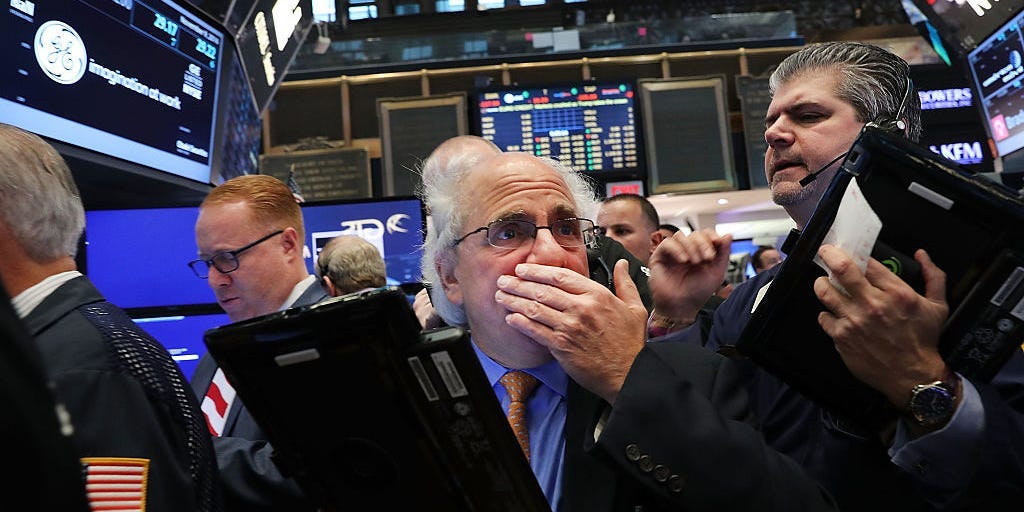
- Russia's central bank closed its stock market on Monday in a bid to stem a sharp decline.
- The central bank also instructed brokers to not execute sell orders from foreign investors.
- Russia's ruble plunged more than 20% on Monday after devastating sanctions from Western countries.
Russia's central bank closed the country's stock market on Monday in a bid to stem an expected sharp decline after crippling financial sanctions were implemented by Western countries over the weekend.
The country's stock market had already experienced a devastating plunge of as much as 50% last week following Russia's invasion of Ukraine. To further reduce a decline in its stock market once it does reopen, the country's central bank instructed brokers to not execute sell orders of Russian stocks from foreign investors, Reuters first reported.
Even though Russia's stock market was closed on Monday, several stocks of Russian companies that trade on exchanges around the globe suffered significant losses, signaling an expected rout in the country's stock market once it does reopen.
Shares of Russia's largest bank, Sberbank, plunged as much as 77% in trades on Monday. The bank is listed on the London Stock Exchange. The move lower comes as Russia's ruble crashed to a record low, and as Russia's exclusion from the SWIFT monetary system by Western countries significantly harmed Russian financial institutions.
Yandex stock sank about 21% in pre-market trades on Monday. The search engine popular in Russia trades on the Nasdaq exchange. Meanwhile, shares of Russian oil giant Rosneft tumbled about 40%. BP said it would divest of its 20% stake in Rosneft, saying its partnership "simply cannot continue" following Russia's attack on Ukraine.
Two financial market sources told Reuters that the action taken by Russia's central bank is "in connection with the current crisis in the financial market and in order to ensure the protection of the rights and legitimate interests of investors in financial markets."
In addition to closing its stock market and restricting sales by foreign investors, Russia temporarily banned short-selling in Russian securities last week. All of this comes as concern grows about Russia's economic uncertainty in the wake of its attack against Ukraine.
In an attempt to prevent a total collapse of the Russian ruble, the central bank more than doubled interest rates to 20%. Whether any of these actions limits a continued decline in the country's stock market and financial institutions remains to be seen.